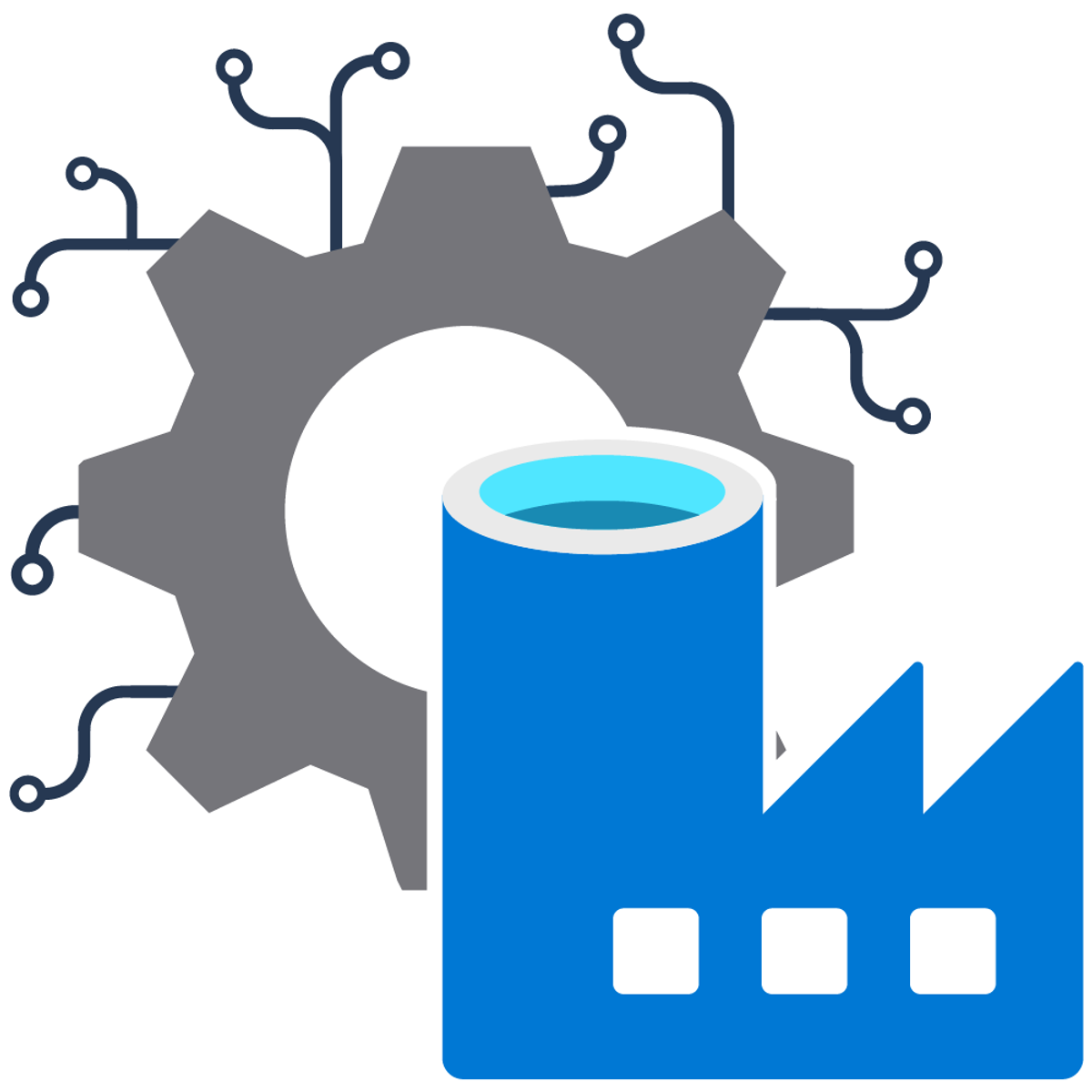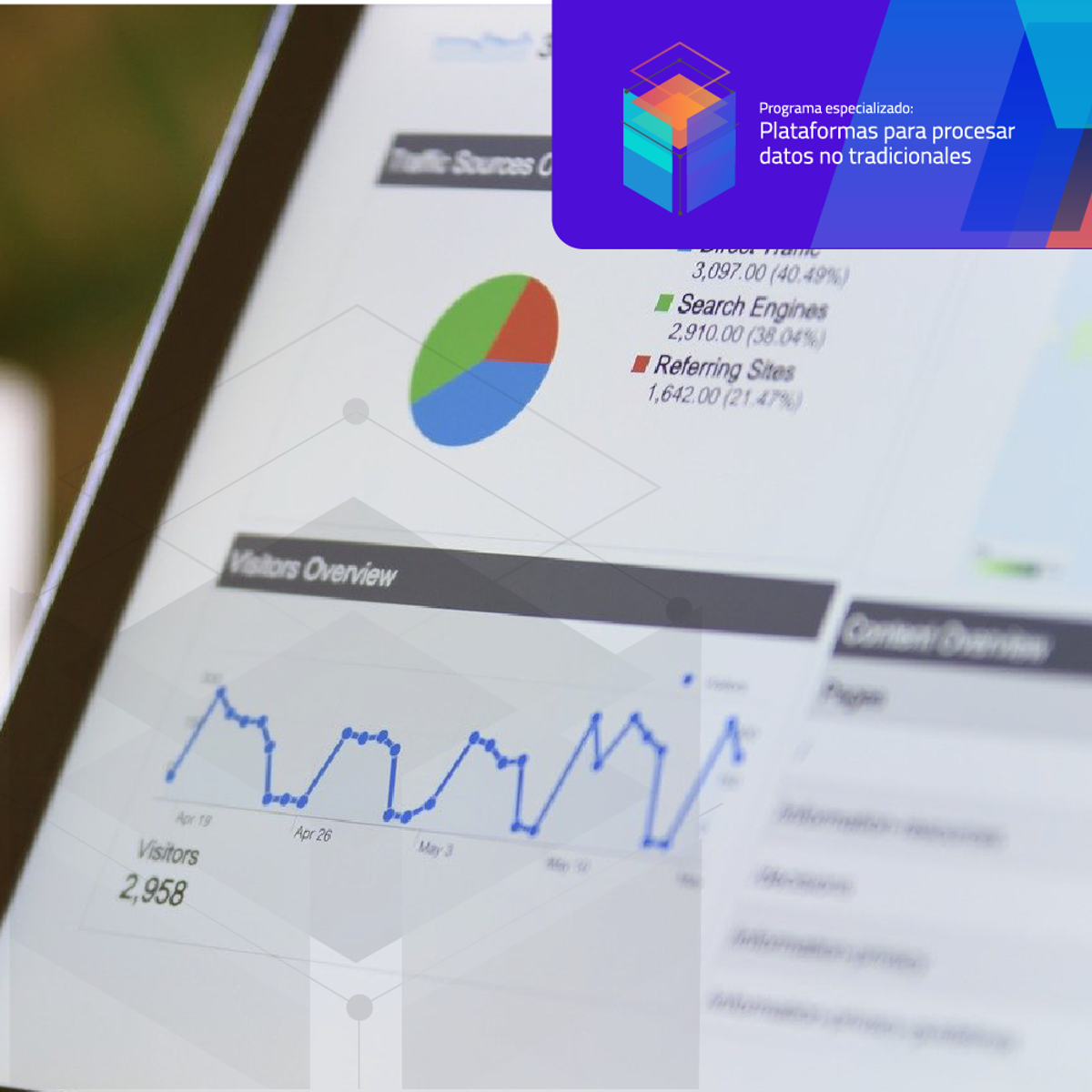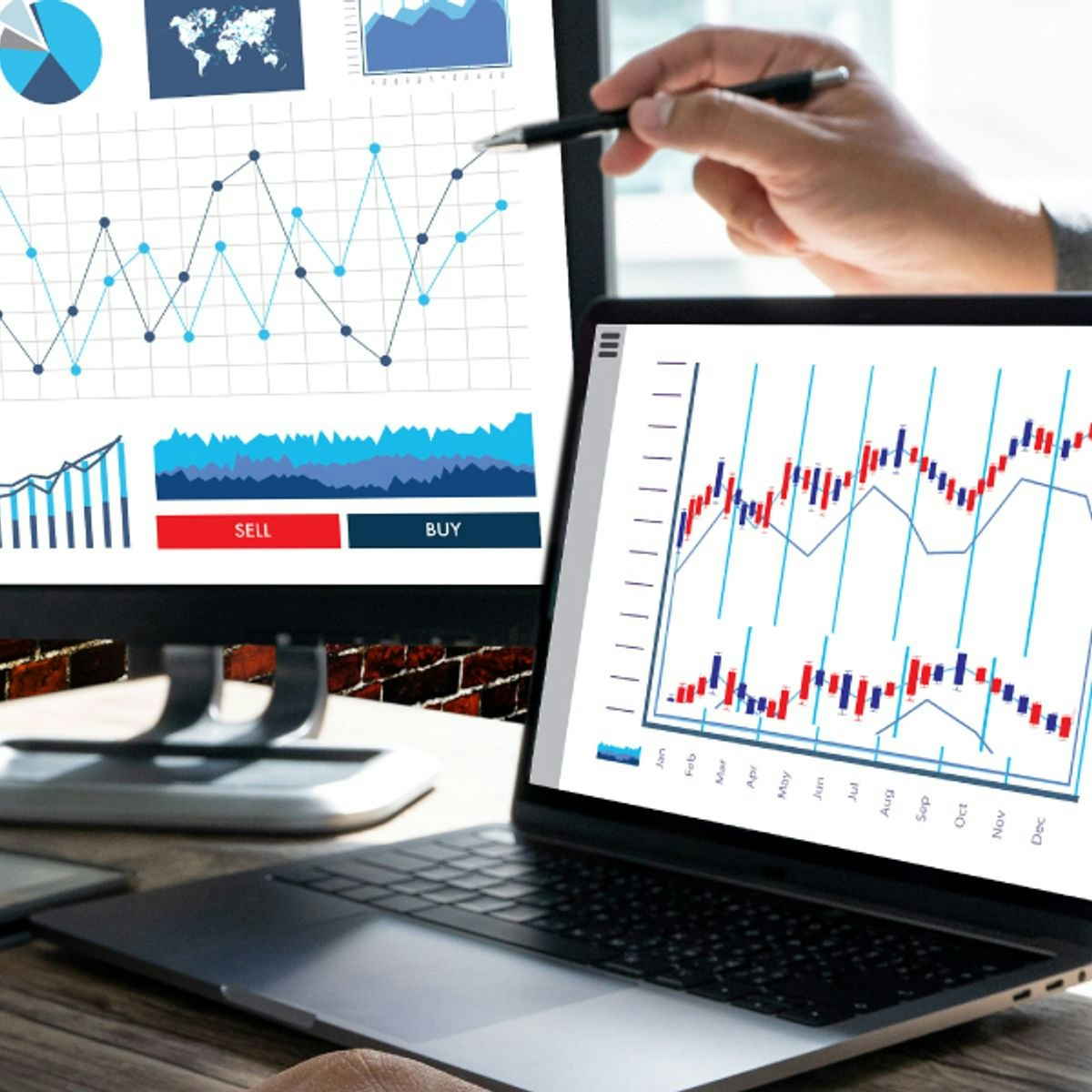Data Librarian
Exploring a Career as a Data Librarian
A Data Librarian occupies a unique and increasingly vital role at the intersection of information science, technology, and research. At a high level, these professionals specialize in managing, curating, preserving, and providing access to research data. They serve as crucial bridges between complex datasets and the researchers, students, and institutions that rely on them, ensuring data is findable, accessible, interoperable, and reusable (FAIR).
Working as a Data Librarian can be deeply engaging. You might find excitement in collaborating directly with researchers across diverse fields, helping them navigate the complexities of data management from project inception to long-term archiving. The role also involves mastering new technologies and standards, offering continuous learning opportunities. Furthermore, contributing to open science and ensuring ethical data handling provides a strong sense of purpose.
Understanding the Role of a Data Librarian
Data Librarians focus on the lifecycle of research data. Their responsibilities extend far beyond traditional library tasks, encompassing the stewardship of digital information generated through scholarly inquiry. They are key players in making research more transparent, reproducible, and impactful by ensuring the underlying data is well-managed and accessible.
Defining the Modern Data Librarian
A Data Librarian is an information professional specializing in the acquisition, curation, management, preservation, and dissemination of datasets, particularly those generated from research. They often work within academic institutions, research centers, government agencies, or even corporations, supporting data-intensive projects and initiatives. Their work involves not just organizing data, but also understanding its context, structure, and potential uses.
They act as intermediaries, translating the needs of researchers into effective data management strategies and ensuring compliance with institutional policies and funder mandates. This often involves developing data management plans, advising on metadata standards, and selecting appropriate repositories for data storage and sharing. They are essentially experts in the stewardship of research outputs in data form.
The role demands a blend of technical expertise, information management principles, and strong communication skills. Data Librarians must be comfortable working with diverse data types, formats, and software tools, while also being adept at collaborating with individuals from various disciplinary backgrounds. Their ultimate goal is to maximize the value and longevity of research data assets.
The Evolution of Data Librarianship
The field of data librarianship emerged in response to the exponential growth of digital data, often termed "Big Data," and the increasing emphasis on data sharing and reproducibility in research. Initially, the focus might have been on managing datasets associated with specific library collections or institutional archives. However, the role has significantly expanded alongside the rise of e-research and open science movements.
Historically, librarians managed physical collections. The digital revolution transformed this, bringing new challenges and opportunities related to managing electronic resources. Data librarianship represents a further evolution, specializing specifically in the complex needs of research data, which often requires different handling than traditional publications or digital archives.
Today, data librarianship is influenced by factors like funder requirements for data management plans, the development of sophisticated data repositories, and the growing recognition of data as a primary scholarly output. It has become a distinct professional specialization within the broader library and information science field, integrating principles from data science, archival science, and domain-specific research practices.
Meeting Modern Research Needs
Data Librarians are essential for supporting contemporary research practices. Modern research is increasingly data-driven, collaborative, and reliant on computational methods. Data Librarians help researchers navigate this landscape by providing expertise in data organization, documentation (metadata), storage, preservation, and sharing.
They assist researchers in complying with data management and sharing policies mandated by funding agencies and publishers, which often require making data openly accessible. This involves understanding specific requirements, identifying suitable data repositories, and advising on data licensing and citation. Their work directly supports research integrity and transparency.
Furthermore, Data Librarians play a critical role in promoting data literacy across their institutions. They often conduct workshops and provide consultations on data management best practices, ethical data handling, and the use of data analysis and visualization tools. This capacity-building function empowers researchers and students to manage their own data more effectively, fostering a culture of responsible data stewardship.
Core Duties and Functions
The day-to-day work of a Data Librarian is varied, involving a mix of technical tasks, collaborative projects, and educational activities. Understanding these core responsibilities provides insight into the skills and mindset needed for success in this field.
Data Curation, Preservation, and Metadata
A primary function is data curation, which involves managing data throughout its lifecycle to ensure its quality, integrity, and long-term accessibility. This includes tasks like cleaning data (identifying and correcting errors or inconsistencies), transforming data into standard formats, and ensuring adequate documentation.
Preservation is another key aspect. Data Librarians work to ensure that valuable datasets remain accessible and usable over time, despite technological obsolescence or media degradation. This often involves selecting appropriate digital preservation strategies and working with institutional repositories or specialized data archives.
Metadata management is crucial for making data discoverable and understandable. Data Librarians develop and apply metadata standards (like XML-based schemas or domain-specific standards) to describe datasets, detailing their context, structure, variables, and provenance. Good metadata allows others to find, interpret, and reuse the data effectively.
These foundational courses cover essential database and data management concepts that underpin much of a Data Librarian's work in curation and metadata.
These books offer in-depth knowledge on data warehousing and cleaning, which are critical skills for data curation and preservation.
Collaboration and Consultation
Data Librarians rarely work in isolation. They collaborate closely with researchers, IT professionals, archivists, subject librarians, and research administrators. They often act as consultants, advising research teams on best practices for managing their data throughout the research process.
This involves understanding the specific data needs and challenges of different disciplines, from social sciences to hard sciences to humanities. Effective communication and the ability to build relationships are paramount, as they need to translate technical requirements into practical guidance for researchers who may not have data management expertise.
Collaboration extends beyond individual projects. Data Librarians often participate in institutional initiatives related to research infrastructure, data policy development, and scholarly communication. They help shape the environment in which research data is created, managed, and shared.
User Education and Advocacy
Educating the research community is a significant part of the role. Data Librarians design and deliver workshops, create online guides, and provide one-on-one consultations on topics like creating Data Management Plans (DMPs), understanding data citation, selecting appropriate metadata standards, and navigating data repositories.
They advocate for the importance of good data management practices and the value of open data principles. This involves promoting library services related to data, raising awareness about available resources and tools, and encouraging researchers to share their data responsibly.
This advocacy role also includes staying informed about emerging trends, tools, and policies in research data management and communicating their relevance to the institutional community. They champion the library's role as a key partner in the research enterprise.
Understanding how to present data effectively is key for advocacy and education. These resources explore data storytelling and visualization techniques.
Ensuring Ethical and Accessible Data
Data Librarians grapple with complex ethical considerations surrounding research data. This includes issues of privacy, confidentiality, consent, and intellectual property, especially when dealing with sensitive data involving human participants or proprietary information.
They advise researchers on how to handle data ethically and legally, ensuring compliance with regulations like HIPAA (for health information) or GDPR (for personal data), as well as institutional review board (IRB) requirements. This involves understanding de-identification techniques and secure data storage practices.
Accessibility is another critical concern. Data Librarians work to ensure that data is not only preserved but also made accessible to appropriate audiences, adhering to principles of fairness and equity. This includes considering accessibility standards for users with disabilities and promoting open access where feasible and ethically appropriate.
This resource provides insight into ethical considerations specific to data handling in research contexts.
record:29kky9y
Essential Skills and Competencies
Succeeding as a Data Librarian requires a diverse skill set, blending technical know-how with interpersonal abilities and often, specific subject knowledge. Building these competencies is key for anyone considering this career path.
Technical Proficiency
A solid technical foundation is essential. This includes understanding database concepts (SQL is often valuable), data formats (like CSV, JSON, XML), and data storage solutions. Familiarity with data management software and repository platforms (e.g., DSpace, Figshare, OSF) is often required.
Scripting languages like Python or R are increasingly beneficial for automating tasks related to data cleaning, transformation, and analysis. While deep programming expertise isn't always mandatory, a basic understanding allows Data Librarians to better support researchers and collaborate with technical teams.
Knowledge of metadata standards (e.g., Dublin Core, DataCite, domain-specific schemas) and data curation techniques is fundamental. Experience with data visualization tools (like Tableau or R libraries) can also be advantageous for helping researchers communicate their findings.
These courses provide foundational technical skills often required, including SQL and data manipulation techniques.
These books delve into practical data analysis using popular tools like Python and R.
Communication and Collaboration Skills
Soft skills are just as critical as technical ones. Data Librarians must communicate complex technical concepts clearly to non-technical audiences, including researchers, students, and administrators. Strong presentation and teaching skills are needed for workshops and consultations.
Collaboration is central to the role. Building effective working relationships with diverse stakeholders across campus requires active listening, empathy, and diplomacy. Project management skills are also valuable for coordinating data initiatives and managing multiple tasks effectively.
Curiosity and problem-solving abilities are key. Data Librarians often encounter novel data challenges and need to be resourceful in finding solutions, requiring adaptability and a willingness to learn continuously.
Domain-Specific Knowledge
While some Data Librarian roles are generalist, many benefit from or require knowledge specific to certain research domains. For example, a Data Librarian supporting health sciences research might need familiarity with clinical data standards and HIPAA regulations. Someone working with geospatial data would need expertise in GIS software and relevant data formats.
Understanding the research methodologies, data types, and scholarly communication practices within specific fields allows Data Librarians to provide more tailored and effective support. This might involve familiarity with specific scientific data repositories, disciplinary metadata standards, or common data analysis techniques used in a field.
While a deep subject background isn't always a prerequisite (many skills are transferable), having some domain familiarity can significantly enhance a Data Librarian's credibility and effectiveness in collaborating with researchers.
This capstone course focuses on evaluating quantitative research, a skill valuable for understanding data across domains.
Educational Pathways to Becoming a Data Librarian
The path to becoming a Data Librarian often involves formal education, blending traditional library science with newer data-focused competencies. Understanding the typical educational routes can help aspiring professionals plan their journey.
Foundation Through Relevant Degrees
A Master's degree in Library Science (MLS) or a related field like Information Science (MIS, MLIS) is typically the standard requirement for librarian positions, including Data Librarians. Many employers prefer degrees from programs accredited by bodies like the American Library Association (ALA) or equivalent international organizations like CILIP.
While an MLS provides a strong foundation in information organization, ethics, and service principles, undergraduate degrees can vary widely. Backgrounds in computer science, statistics, social sciences, natural sciences, or humanities can all be relevant, depending on the specific focus area one aims for.
Increasingly, library science programs are incorporating data-related coursework, but supplementing an MLS with additional training or degrees in data science, data analytics, or a specific research domain can be highly advantageous.
Graduate Programs and Certifications
Many MLS/MLIS programs now offer specializations, concentrations, or certificates in areas like Data Curation, Digital Stewardship, or Data Science. These programs provide focused training on data management principles, tools, and technologies relevant to the field.
Beyond the primary master's degree, postgraduate certificates or even secondary master's degrees in fields like Data Analytics, Bioinformatics, or Geographic Information Systems (GIS) can significantly enhance qualifications, particularly for specialized roles.
Professional certifications, while less common as a strict requirement than the MLS, can demonstrate specific expertise. Organizations sometimes offer certifications or specialized training programs related to research data management or digital preservation.
Integrating Data Science Coursework
Given the technical demands of the role, integrating data science coursework into one's education is highly recommended. This might involve taking courses within an MLS program, pursuing a dual degree, adding a minor or certificate, or supplementing formal education with external courses.
Key areas of data science relevant to Data Librarians include data manipulation and cleaning, database management (especially SQL), introductory programming (Python/R), data visualization, and understanding statistical concepts. Familiarity with machine learning principles can also be beneficial as AI impacts information discovery and management.
The goal is not necessarily to become a full-fledged Data Scientist, but to acquire sufficient technical literacy to effectively manage data, understand researchers' needs, and collaborate with technical specialists.
This book provides a broad overview helpful for those considering the integration of data science skills.
Exploring related careers can provide context for the skills needed.
Leveraging Online Learning and Self-Directed Training
Formal education provides a strong base, but the rapidly evolving nature of data management and technology means continuous learning is essential. Online courses and self-directed training offer flexible and accessible ways to acquire new skills or deepen existing knowledge, particularly for those transitioning careers or seeking specialized expertise.
The Role of Online Courses and Hybrid Models
Online courses are highly suitable for building foundational and specialized skills relevant to data librarianship. Platforms like Coursera, edX, Udacity, and specialized library training providers offer courses on topics ranging from SQL and Python programming to metadata standards, data visualization, research data management, and digital preservation.
These courses allow learners to study at their own pace and often provide hands-on practice with relevant tools and techniques. Many offer certificates upon completion, which can be valuable additions to a resume. OpenCourser makes it easy to browse thousands of data science courses and compare options.
Hybrid learning models, combining online coursework with potential in-person workshops or bootcamps, can also be effective. Furthermore, many professional organizations offer webinars and online workshops, providing opportunities for continuing professional development.
These online courses offer flexible ways to learn specific data management tools and techniques relevant to Data Librarians.
Building Experience Through Projects
Theoretical knowledge gained through courses is best solidified through practical application. Engaging in projects using open data is an excellent way to build a portfolio and demonstrate skills to potential employers. Numerous government agencies, research institutions, and organizations make datasets publicly available.
Learners can undertake projects involving cleaning, analyzing, and visualizing open data related to their interests or target domain. This could involve exploring trends in public health data, analyzing environmental datasets, or visualizing historical census information. Documenting these projects, perhaps on a personal blog or platform like GitHub, showcases initiative and practical ability.
Volunteering for projects within one's institution or community that involve data management tasks can also provide valuable hands-on experience. Contributing to open-source data projects or participating in data challenges ("datathons") are other ways to practice skills collaboratively.
This capstone project course allows learners to apply data analysis skills to a real-world challenge, simulating the project-based work often encountered.
Supplementing Education with Specialized Training
Online learning is particularly useful for acquiring specialized skills that may not have been covered in depth during formal education or have emerged since graduation. This could include learning a specific data repository platform, mastering a new data visualization tool, or understanding a niche metadata standard.
Workshops offered by professional library associations (like ALA, CILIP, or ACRL), research data organizations (like the Research Data Alliance), or software vendors provide targeted training opportunities. Attending conferences often includes pre-conference workshops focused on specific skills.
Staying current requires continuous learning. Subscribing to relevant journals, blogs, and mailing lists, and actively participating in professional networks (both online and offline) helps Data Librarians keep abreast of new tools, techniques, and best practices in this dynamic field.
OpenCourser's Learner's Guide offers tips on structuring self-directed learning and maximizing the value of online courses. Saving courses to a list using the "Save to List" feature on OpenCourser (manage your list here) can help organize a personalized learning path.
Career Trajectory and Advancement
A career as a Data Librarian offers various paths for growth and specialization. Understanding the typical progression can help individuals plan their long-term career development within this evolving field.
Starting Roles and Entry Points
Entry-level positions might have titles like Data Curation Assistant, Research Data Management Specialist, Digital Scholarship Assistant, or junior Data Librarian. These roles often focus on specific tasks within the data lifecycle, such as assisting researchers with data deposit, applying metadata, or helping maintain data repositories.
Other related entry points could be roles like Library Assistant or Technician, particularly those involving digital collections or technical services, which can provide foundational experience. Positions like Data Archivist or Metadata Librarian also share significant overlap and can serve as stepping stones.
Internships or volunteer positions focused on data management or digital projects during or after obtaining an MLS degree are highly valuable for gaining initial experience and making professional connections.
These related careers often share overlapping skill sets and can be entry points or parallel paths.
Mid-Career Specialization
With experience, Data Librarians often develop deeper expertise in specific areas. Specialization might focus on a particular research domain (e.g., Health Data Librarian, Geospatial Data Librarian), a specific function (e.g., Data Preservation Specialist, Metadata Strategist), or a type of technology (e.g., Repository Manager).
Mid-career roles may involve more responsibility for service development, project leadership, policy implementation, and training or mentoring junior staff. Titles could include Data Services Librarian, Data Curation Librarian, Scholarly Communications Librarian (with a data focus), or Institutional Repository Manager.
This stage often involves greater collaboration across institutional units and potentially contributing to regional or national data initiatives. Continued professional development and networking are crucial for staying current and identifying advancement opportunities.
These careers represent potential mid-career paths or areas of specialization.
Leadership and Strategic Roles
Senior Data Librarians may move into leadership positions with broader strategic responsibilities. Titles might include Head of Data Services, Director of Digital Scholarship, Associate University Librarian for Digital Initiatives, or Chief Data Steward.
These roles typically involve managing teams, setting strategic directions for data services, overseeing budgets, developing institutional data policies, and representing the library in high-level discussions about research infrastructure and data governance.
Leadership requires strong management skills, strategic thinking, advocacy abilities, and a deep understanding of the evolving research landscape. Some Data Librarians might also transition into roles outside traditional libraries, such as data management consulting or positions within research funding agencies or data-intensive industries.
This career involves managing database systems, a potential leadership path or related technical role.
Industry Trends Shaping Data Librarianship
The field of data librarianship is dynamic, influenced by broader trends in technology, research practices, and information policy. Staying aware of these trends is crucial for career relevance and effective service delivery.
Open Science and Funder Mandates
The push towards Open Science, emphasizing transparency and accessibility in research, significantly impacts Data Librarians. This includes increasing requirements from funding agencies (like the NIH, NSF, and European funders) for researchers to create Data Management Plans (DMPs) and share their data openly in repositories.
Data Librarians are often the primary point of contact for researchers needing assistance with meeting these mandates. This trend increases the demand for expertise in DMPs, data sharing strategies, repository selection, data citation standards, and open licensing.
The emphasis on FAIR principles (Findable, Accessible, Interoperable, Reusable) guides much of the work in data curation and repository management, making familiarity with these principles essential.
The Influence of Artificial Intelligence
Artificial Intelligence (AI) and machine learning are beginning to impact data librarianship. AI tools show potential for automating tasks like metadata extraction and generation, data classification, and potentially even aspects of data quality checking. This could free up librarians for more complex consultative and strategic work.
However, AI also introduces challenges related to bias in algorithms, ethical use of AI in research, and the need for new skills in evaluating and utilizing AI tools responsibly. As noted in recent reviews like the 2024 Top Trends in Academic Libraries by ACRL, AI literacy is becoming increasingly important for librarians.
Data Librarians may need to develop skills in understanding AI applications, advising researchers on ethical AI use in data analysis, and potentially leveraging AI tools to enhance data discovery and management services. The rise of AI underscores the need for continuous learning and adaptation in the field.
Cross-Sector Data Governance Needs
The need for robust data governance – establishing policies and procedures for managing data assets effectively and ethically – extends beyond academia. Corporations, government agencies, and non-profits increasingly recognize the importance of managing their data strategically.
This creates potential opportunities for individuals with data librarianship skills to apply their expertise in diverse sectors. Skills in data curation, metadata management, data policy development, and ensuring data quality are valuable in many organizational contexts focused on data governance.
This trend highlights the transferability of data management skills and suggests potential career paths outside traditional library settings for those with the right expertise.
Navigating Ethical Complexities
Data Librarians frequently encounter ethical dilemmas inherent in managing and providing access to information. Navigating these complexities requires careful judgment, adherence to professional ethics, and awareness of relevant legal and policy frameworks.
Balancing Privacy and Openness
A core tension exists between the ethical imperative to protect individual privacy and the push towards open data sharing for research transparency and reuse. Data Librarians must help researchers navigate this balance, particularly when dealing with sensitive data (e.g., health records, survey responses with personal identifiers).
This involves advising on anonymization or de-identification techniques, understanding informed consent processes, and implementing appropriate access controls for restricted datasets. They must be knowledgeable about relevant privacy regulations (like HIPAA or GDPR) and institutional policies.
Advocating for openness must always be tempered by ethical responsibilities to protect human subjects and confidential information. Finding the right balance requires careful consideration of risks and benefits on a case-by-case basis.
This resource explores ethical considerations related to data in research settings.
record:22kky9y
Cultural Sensitivity in Data Practices
Data collection and preservation practices must be approached with cultural sensitivity. This is particularly relevant when working with data related to specific communities, indigenous groups, or historical contexts where power imbalances may exist.
Ethical considerations include ensuring appropriate representation, respecting community protocols for data ownership and sharing, and avoiding the perpetuation of harmful stereotypes or biases through data collection or description. Applying frameworks like the CARE Principles for Indigenous Data Governance (Collective Benefit, Authority to Control, Responsibility, Ethics) is becoming increasingly important.
Data Librarians need to be aware of these issues and advocate for culturally responsive approaches to data management, ensuring that data practices respect diverse perspectives and avoid causing harm.
Environmental Impact of Digital Data
The massive growth in digital data raises concerns about the environmental footprint of data storage and processing. Large data centers consume significant amounts of energy and resources.
While individual Data Librarians may have limited direct control over institutional infrastructure choices, awareness of these issues is growing within the profession. Discussions around sustainable digital preservation practices, optimizing storage efficiency, and considering the lifecycle environmental costs of data are emerging.
This ethical dimension encourages a more holistic view of data stewardship, considering not just immediate access and preservation needs but also the longer-term environmental responsibilities associated with managing vast digital collections.
Frequently Asked Questions about Data Librarian Careers
For those exploring data librarianship, several common questions arise regarding salary, career transitions, work arrangements, and future prospects. Here are concise answers based on available information.
What is the typical salary range?
Salaries for Data Librarians vary significantly based on location, type of institution (academic, government, corporate), level of experience, and specific responsibilities. General librarian salary data provides a baseline. The U.S. Bureau of Labor Statistics (BLS) reported the median annual wage for all librarians and library media specialists was $64,370 in May 2023.
Positions requiring specialized technical skills or advanced degrees in data science may command higher salaries, potentially aligning more closely with data analyst or data scientist roles in some sectors. Salaries in academic libraries often follow institutional faculty or staff pay scales, while corporate or government roles might differ.
It's advisable to research salary ranges specific to the type of institution and geographic region of interest using resources like ALA-APA salary surveys, job postings, and sites like Salary.com or Glassdoor, keeping in mind that "Data Librarian" is a specialized subset.
How can one transition from traditional librarianship?
Transitioning from a traditional library role (e.g., reference, cataloging, subject liaison) is common. Start by identifying transferable skills, such as information organization, research support, instruction, and metadata principles. Build upon this foundation by acquiring specific data-related competencies.
Focus on targeted professional development: take online courses in data management, SQL, Python/R, or data visualization. Seek out opportunities within your current role to work on data-related projects, assist with repository management, or support researchers with DMPs. Attend workshops and webinars focused on data librarianship.
Networking with existing Data Librarians, joining relevant professional groups (like ACRL's Digital Scholarship Section or specific data communities), and highlighting relevant project experience on your resume are key steps. Be prepared to demonstrate both your library expertise and newly acquired data skills.
Are remote work opportunities available?
Yes, remote work opportunities for Data Librarians exist, although availability varies. Some tasks, like data curation, metadata creation, virtual consultations, and online instruction, can often be performed remotely. Many institutions adopted more flexible work arrangements following the COVID-19 pandemic.
However, some roles may require an on-site presence for in-person collaboration, direct user support, or managing physical data media if applicable. Hybrid models, combining remote and on-site work, are also common. Job boards like ALA JobLIST, HigherEdJobs, and general remote work platforms like FlexJobs often list remote or hybrid librarian positions.
Competition for fully remote positions can be high. Demonstrating strong self-management, communication skills suitable for remote collaboration, and proficiency with relevant technologies is important when applying for these roles.
How might AI impact job demand?
AI is expected to change, rather than eliminate, the role of Data Librarians. While AI may automate some routine tasks like basic metadata generation or simple data cleaning, it also creates new needs and opportunities. Librarians will be needed to manage, evaluate, and ethically implement AI tools.
The need for human expertise in complex data curation, ethical decision-making, specialized researcher consultation, instruction in data literacy (including AI literacy), and strategic planning for data services is likely to remain strong, potentially even increasing. Librarians adept at leveraging AI tools and navigating their implications will be highly valued.
The focus may shift towards higher-level skills: critical evaluation of data and AI outputs, complex problem-solving, strategic data governance, and fostering ethical data practices within the research community. Adaptability and continuous learning will be key to thriving alongside AI advancements.
What is the global job market like?
The demand for Data Librarians is growing globally, particularly in countries with strong research sectors and increasing emphasis on open science policies (e.g., North America, Europe, Australia). However, the prevalence and specific nature of roles can vary significantly.
In some regions, data management responsibilities might be integrated into existing librarian roles rather than standalone positions. The level of institutional investment in research data infrastructure also influences job availability. Checking international library association job boards and major academic job sites can provide insights into specific country markets.
Language requirements and recognition of qualifications (like MLS equivalency) are important considerations for international job seekers. Networking within international data management communities can also uncover opportunities.
Is freelance or consulting work possible?
Yes, freelance or consulting opportunities exist for experienced Data Librarians. Individuals with specialized expertise (e.g., in specific data types, repository platforms, or data policy development) can offer their services to institutions needing project-based assistance or strategic advice.
This might involve helping smaller institutions set up data services, providing specialized training workshops, consulting on large-scale data migration projects, or assisting organizations with developing data governance frameworks. Building a strong professional reputation and network is crucial for success in consulting.
Freelancing often requires business development skills in addition to data expertise. It offers flexibility but also demands self-discipline and the ability to manage fluctuating workloads and income.
Embarking on a career as a Data Librarian offers a path filled with intellectual challenges, technological engagement, and the satisfaction of supporting research and scholarship. It requires a blend of traditional library values and modern data skills, demanding continuous learning and adaptation. For those passionate about organizing information, supporting discovery, and navigating the complexities of the digital age, it presents a rewarding and impactful profession.










